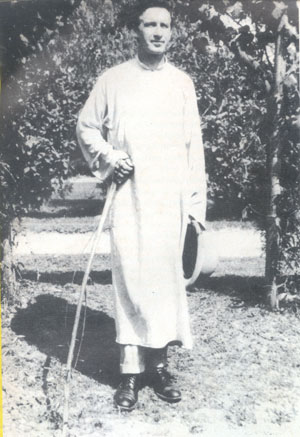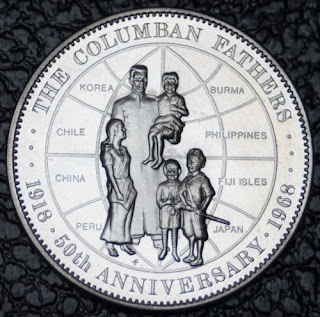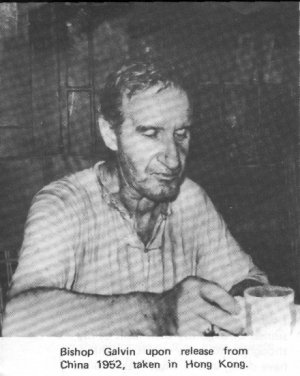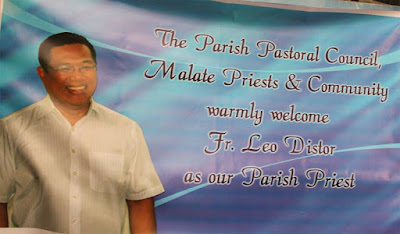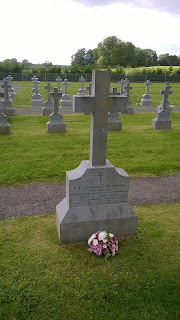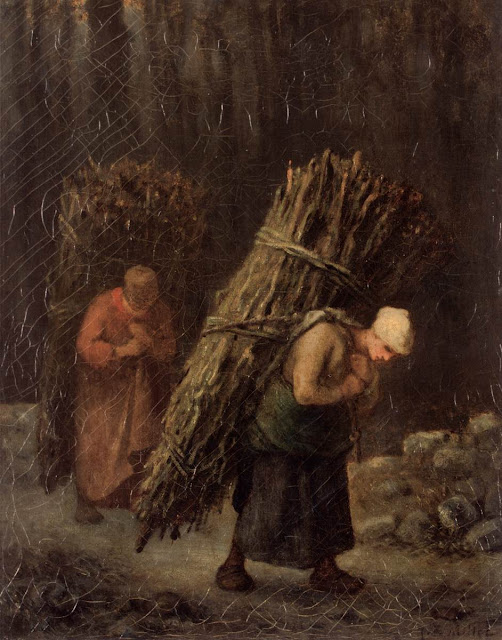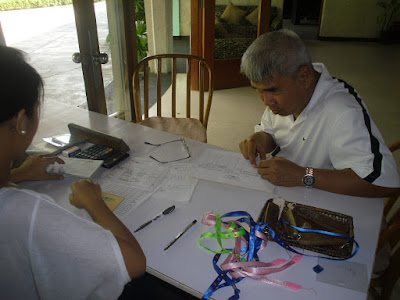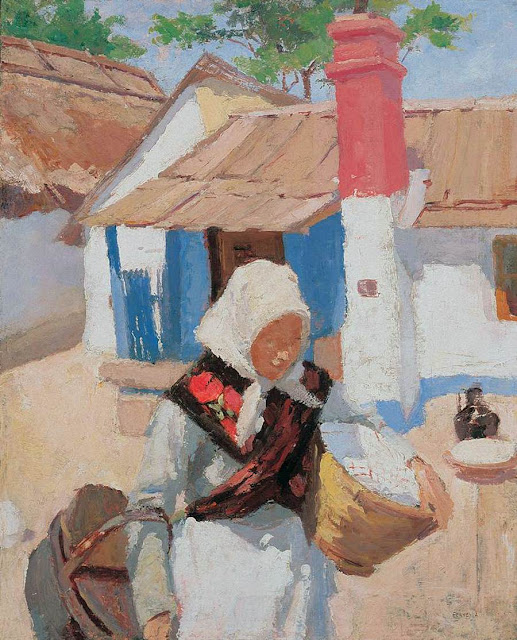‘Zacchaeus, hurry and come down; for I must stay at your house today.’ Sunday Reflections, 31st Sunday in Ordinary Time, Year C
Zacchaeus’s sycamore tree, Jericho [Wikipedia]
Readings (New American Bible: Philippines, USA)
Readings (Jerusalem Bible: Australia, England & Wales, India [optional], Ireland, New Zealand, Pakistan, Scotland, South Africa)
Gospel Luke 19:1-10 (New Revised Standard Version, Catholic Edition, Canada)
Jesus entered Jericho and was passing through it. A man was there named Zacchaeus; he was a chief tax collector and was rich. He was trying to see who Jesus was, but on account of the crowd he could not, because he was short in stature. So he ran ahead and climbed a sycamore tree to see him, because he was going to pass that way. When Jesus came to the place, he looked up and said to him, “Zacchaeus, hurry and come down; for I must stay at your house today.” So he hurried down and was happy to welcome him. All who saw it began to grumble and said, “He has gone to be the guest of one who is a sinner.” Zacchaeus stood there and said to the Lord, “Look, half of my possessions, Lord, I will give to the poor; and if I have defrauded anyone of anything, I will pay back four times as much.” Then Jesus said to him, “Today salvation has come to this house, because he too is a son of Abraham. For the Son of Man came to seek out and to save the lost.”
The Brothers in Black who produced Exclusive Interview with Zacchaeus, the video above, are seminarians from the USA studying in Rome.
‘Zacchaeus’ recounting his meeting with Jesus in the ‘Exclusive Interview’ above recalls, And he looked me right in the eyes. He goes on to repeat that.
In 2009, in a preface to a book on St Augustine, the then Jorge Mario Cardinal Bergoglio, Archbishop of Buenos Aires, now Pope Francis, wrote: The most striking image for me of how one becomes a Christian, as it emerges in this book, is the way in which Augustine recounts and comments on Jesus’ encounter with Zacchaeus. Zacchaeus is small, and wants to see the Lord pass, and so he climbs a sycamore. Augustine says: ‘Et vidit Dominus ipsum Zacchaeum. Visus est, et vidit.’ [And the Lord looked at Zacchaeus himself. He was seen, and saw.]
The then Cardinal Bergoglio comments [emphasis added here and below]: Some believe that faith and salvation come with our effort to look for, to seek the Lord. Whereas it’s the opposite: you are saved when the Lord looks for you, when He looks at you and you let yourself be looked at and sought for. The Lord will look for you first. And when you find Him, you understand that He was waiting there looking at you, He was expecting you from beforehand.
That is salvation: He loves you beforehand. And you let yourself be loved. Salvation is precisely this meeting where He works first. If this meeting does not take place, we are not saved. We can talk about salvation. Invent reassuring theological systems that turn God into a notary and His gratuitous love into a due deed to which He is supposed to be forced by His nature. But we never enter into the People of God. Whereas, when you look at the Lord and you realize with gratitude that you are looking at Him because He is looking at you, all intellectual prejudices go away, that elitism of the spirit that is characteristic of intellectuals without talent and is ethicism without goodness.
God’s mercy has been one of the main themes of Pope Francis since he became Bishop of Rome. And when you find Him, you understand that He was waiting there looking at you, He was expecting you from beforehand. These words of his while still in Buenos Aires recall the story of the Prodigal Son. But while he was still far off, his father saw him and was filled with compassion; he ran and put his arms around him and kissed him (Luke 15:20).
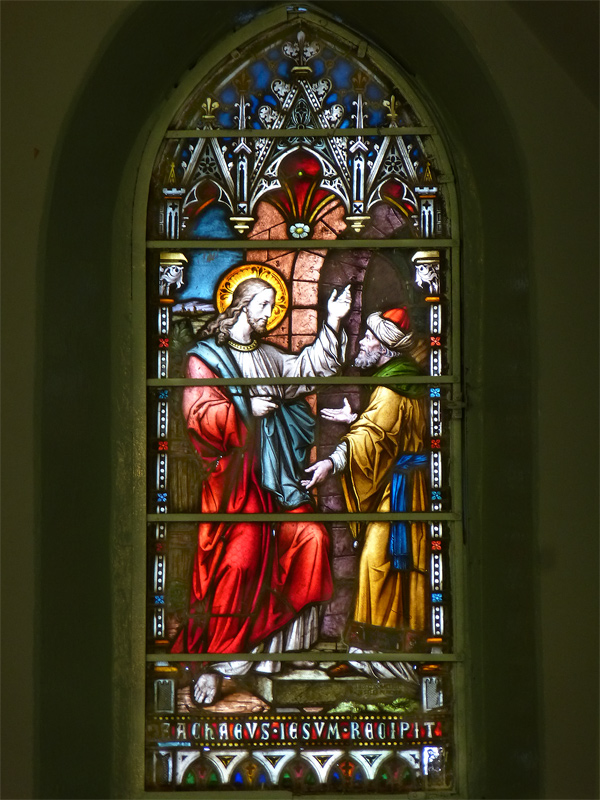
Zacchaeus receives Jesus
Church of the Good Shepherd, Jericho [Wikipedia]
I’ve often used today’s gospel in retreats with young people in the context of preparing them for the sacrament of confession. Zacchaeus publicly acknowledges that he has cheated but is ready to give back fourfold what he has cheated people of. He has a joyful face-to-face meeting with Jesus that includes a celebratory meeting.
In his homily on 25 October 2013 in St Martha’s, Vatican City, Pope Francis spoke once again about confession. He reminded those present that the sacrament is not like going to a psychiatrist or to a torture chamber. He also reminds us how far too easy it is to say I confess to God. That’s like confessing by email, he comments. I say things and there’s no face-to-face contact. He then goes on to speak of how concrete children are when they confess their sins.
The meeting of Jesus and Zacchaeus was a deeply personal experience for both. In all his meetings with individuals Jesus gave of himself. We see that starkly in the story of the healing of the woman who had been bleeding for 12 years and who was cured when she touched his garment: Immediately aware that power had gone forth from him, Jesus turned about in the crowd and said, ‘Who touched my clothes?’ (Mark 5:30).
Entrance Antiphon Cf Psalm 37[38]:22-23

Ravensburg Madonna of Mercy, Michael Erhart, 1480s
Staatliche Museen, Berlin [Web Gallery of Art]
First Reading Wisdom 11:22 – 12:2
The whole world before you is like a speck that tips the scales, and like a drop of morning dew that falls on the ground.
But you are merciful to all, for you can do all things, and you overlook people’s sins, so that they may repent.
For you love all things that exist, and detest none of the things that you have made, for you would not have made anything if you had hated it.
How would anything have endured if you had not willed it? Or how would anything not called forth by you have been preserved?
You spare all things, for they are yours, O Lord, you who love the living. For your immortal spirit is in all things.
Therefore you correct little by little those who trespass, and you remind and warn them of the things through which they sin, so that they may be freed from wickedness and put their trust in you, O Lord.

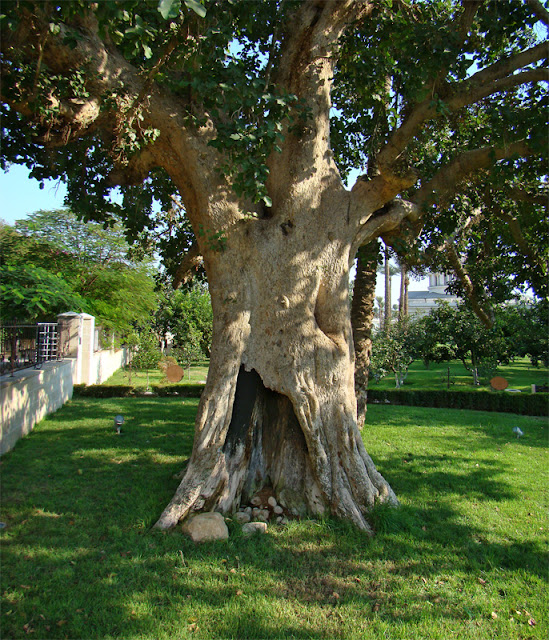
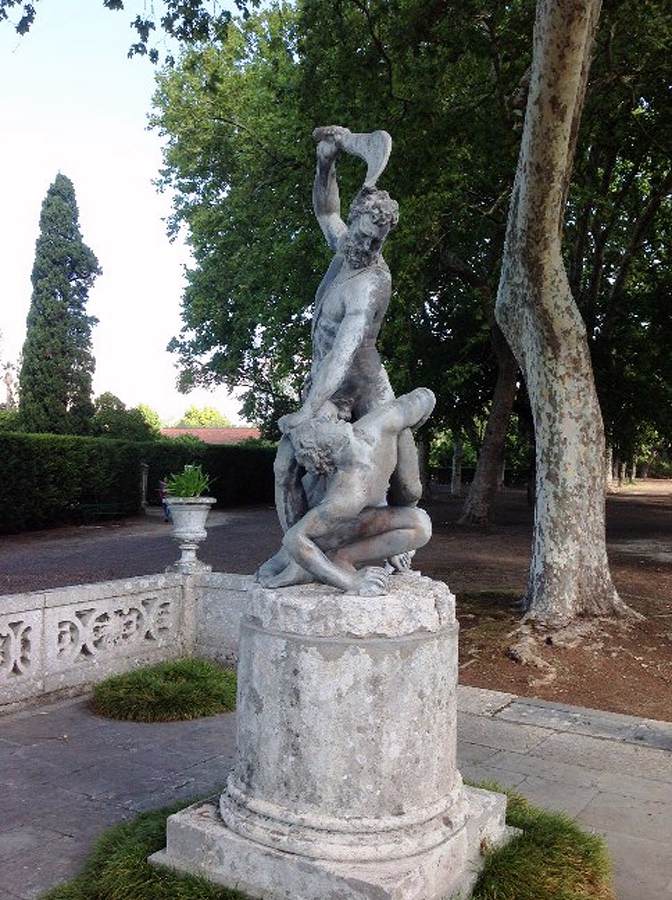
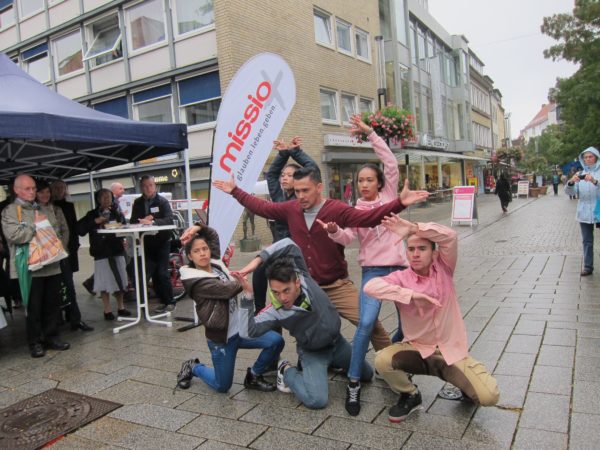
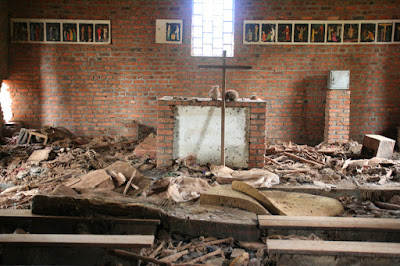

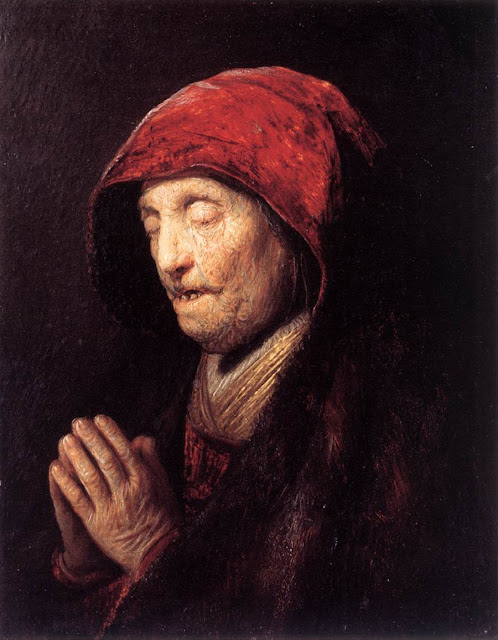
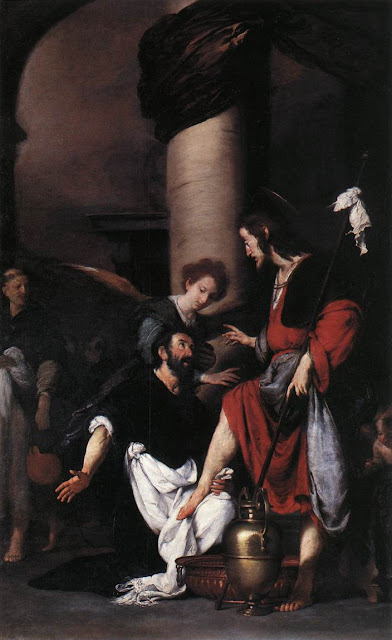

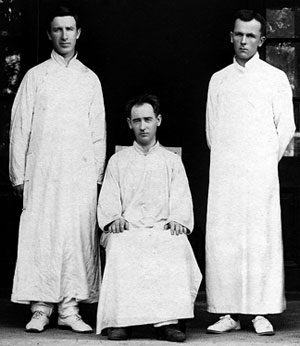

 Frs Owen McPolin, John Blowick and Edward Galvin
Frs Owen McPolin, John Blowick and Edward Galvin 